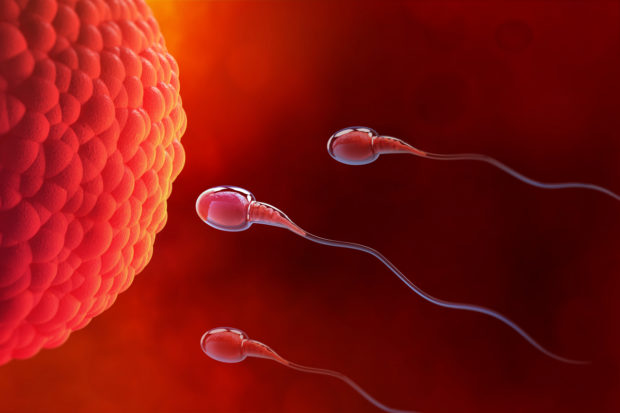New compound immobilizes sperm for hours, research shows

The Korea Herald/Asia News Network
SEOUL — Vasectomies are often topics of conversation among couples who have already had enough children or for those who do not want any in the first place.
Condoms or abstinence are the only other options for male contraception, while there are several available to women, including hormonal pills, IUD implants, vaginal rings and diaphragms.
Recent research results suggest that an on-demand, non-hormonal male contraceptive pill might someday become a reality, as scientists have found a cell pathway, or switch, that temporarily stops sperm from being able to swim.
Researchers tested a compound that blocks an enzyme sperm need to swim on mice, finding that it immobilized sperm for a few hours — long enough to prevent them from reaching the egg. The same enzyme is found in the sperm of many mammals, including humans.
According to a paper co-authored by Jochen Buck, a pharmacologist at Weill Cornell Medicine, and published Feb. 14 in the Nature Communications journal, Buck’s lab found the on-switch that turns sperm on to move, and they have now developed a compound which inhibits it.
Article continues after this advertisementIf commercialized after successful clinical trials and government approvals, there would be great potential demand for the epochal drug in South Korea, as well as in other countries, a pharma industry official in Korea said.
Article continues after this advertisement“We don’t know whether it will be commercialized or how long it may take, but if the drug gets out on the market, it would definitely be a game changer in the world of contraception which has been mostly women’s work so far,” said an official at Boryung Corp., a major pharmaceuticals company that sells contraceptive pills.
Although it is too early to say whether it will work on humans, urologists and pharmacologists have reacted positively toward the new compound.
According to Buck’s team, within 2.5 hours after injecting the drug, it was 100 percent effective at preventing conception. Within 3.5 hours, it was 91 percent effective.
Researchers are now testing the compound on rabbits, and Buck reportedly said he hopes the drug might be available in about eight years from now.
RELATED STORIES